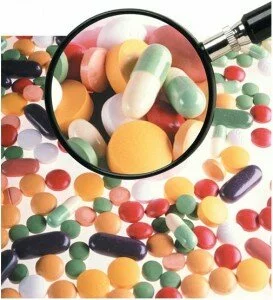Packing for a trip can be a daunting task – especially if prescription medications are on your list of travel essentials. Maybe you aren’t sure how much to bring or perhaps you have certain prescription medications that require refrigeration or other special accommodations. Not to worry! We’re going to show you how to travel with prescription medication with tips that will ensure both the safety and integrity of your medication during the trip as well as your peace of mind.
Keep it close and keep it safe
When packing for your trip and planning how to travel with prescription medication, leave enough room in your carry on bags. Having your medication close at hand will ensure that you are able to locate and access it when you need it as well as safeguard against it being lost or stolen during transitions.
Have an extra week’s supply on hand
You never know what will happen during your trip so being prepared when traveling with prescription medication is imperative. Discuss your travel plans with your doctor and secure an extra week’s supply of any prescription medication you may have. Having an additional supply on hand will provide a safety net in case some of your medications are lost, stolen or destroyed – or in the event that you are gone longer than you intended to be.
Keep a written log of important information
Before you leave on your trip, write down everything there is to know about your medications, including the name of the medication, the dosage, the time table of when you take it, the condition its meant to treat, the prescribing physician and pharmacy as well as their contact information. You may also want to include whether the medication you are traveling with is the generic or brand name form as well. If possible, get an additional prescription from your doctor just in case you need to have it filled again while you are away. Keep this log with your medication at all times.
Know the rules and regulations beforehand
When planning how to travel with prescription medication, take into consideration your travel plans as well as your destination. Some airlines have strict restrictions against traveling with liquids and other materials they deem to be hazardous. They may also have special labeling requirements that must be followed as well.
If your travel plans include visiting other countries, educate yourselves on their laws regarding the importation of prescription medication and make sure you follow them to the letter. Failing to do so could result in your medication being confiscated, fines or possibly jail time.
Special considerations
If you have diabetes or a similar condition that requires monitoring at certain intervals or additional medical supplies for meters or other medical equipment, be sure that you pack twice as much as you expect to use during the time you are away. Remember to include extra batteries, testing strips and related items to ensure you are able to keep up with your routine. Some medications may need refrigeration so its very important to be aware of this and plan accordingly to accommodate those types of prescription medications. Don’t forget to include any and all relevant information to these special conditions in the medication log you made earlier.
At www.DrugSearch.com, we pride ourselves on bringing you important up to date prescription medication news and information. We offer a free, easy to use database where consumers can compare prescription drug prices from the comfort of their own homes – any time of the day or night. eDrugSearch also provides safe access to affordable medications at a savings of up to 80% off retail prices.
About this Angie’s List Expert: Cary Byrd is the president and founder of eDrugSearch.com. Based in San Antonio, eDrugSearch.com is a free cost comparison engine that helps consumers get safe access to affordable medications and advocates licensed online pharmacies as a widely accepted alternative.
Got this one in the inbox today. It just screams credibility, doesn’t it?
I’m sure we don’t need to remind our readers of this, but just in case a new visitor doesn’t already know this: NEVER RESPOND TO A SPAM SOLICATION OF ANY KIND OVER THE INTERNET — ESPECIALLY FROM AN ONLINE PHARMACY! You’re putting both your money and health at risk if you do.
Happy holidays, everyone.
A group of students at California Northstate College of Pharmacy put together this short video on the dangers of sharing prescription drugs like penicillin and Adderall. (Remember, they’re training to be pharmacists — not actors.)
 Tens of thousands of Americans die every year from adverse prescription drug reactions — sometimes from an overdose, other times from an unexpected side effect, and often from taking the wrong combination of drugs. We have written before about the promise of Web sites like PharmaSurveyor and DoubleCheckMD, which help people to check the safety of their drug regimens. But making sure you are taking your drugs safely starts with having a proactive relationship with your doctor.
Tens of thousands of Americans die every year from adverse prescription drug reactions — sometimes from an overdose, other times from an unexpected side effect, and often from taking the wrong combination of drugs. We have written before about the promise of Web sites like PharmaSurveyor and DoubleCheckMD, which help people to check the safety of their drug regimens. But making sure you are taking your drugs safely starts with having a proactive relationship with your doctor.
I came across a list of “rules” for safer prescription drug use by the non-profit consumer group Public Citizen, and found some useful ideas in it. I’ve summarized the tips in excerpts below. Go here for the full post.
1. Have “Brown Bag Sessions” with Your Primary Doctor.
Whenever you go to a doctor you have not previously seen or to one with whom you have never had a brown-bag session, gather all prescription and over-the-counter drugs and dietary supplements in your medicine cabinet or anywhere else and bring them to the doctor … Doctors should never prescribe a drug or renew a prescription, nor should you be willing to get a new prescription, without full, up-to-date knowledge of all drugs already being taken or likely to be taken.
2. Make Sure Drug Therapy Is Really Needed.
Often, drugs are prescribed to treat situational problems such as loneliness, isolation, and confusion. Whenever possible, nondrug approaches to these problems should be tried. These include hobbies, socializing with others, and getting out of the house. When a person is suffering from an understandable depression after losing a loved one, for example, support from friends, relatives, or a psychotherapist is often preferable to drugs such as antidepressants. Nondrug therapy, such as weight loss and exercise, is preferable to drug therapy for such problems as mild high blood pressure and mild adult-onset diabetes. Drugs should rarely be prescribed for anxiety or difficulty sleeping, particularly in older adults…
3. If Drug Therapy Is Indicated, in Most Cases, Especially in Older Adults, It Is Safer to Start with a Dose That Is Lower Than the Usual Adult Dose.
More generally, start with as low a dose as possible. In other words, “Start low, go slow.” A lower dose will cause fewer adverse effects, which are almost always related to dose. In the elderly, some experts suggest starting with one-third to one-half the usual adult dose for most drugs and watching for side effects, increasing the dose slowly and only if necessary to get the desired effect.
4. When Adding a New Drug, See If It Is Possible to Discontinue Another Drug.
If your doctor is considering adding a new drug, this is an opportunity to reevaluate existing drugs and eliminate those that are not absolutely essential. The possibility of an adverse drug interaction between the new drug and one of the old ones may lead to discontinuing or changing the use of a drug.
5. Stopping a Drug Is as Important as Starting It.
At least every three to six months, regularly review with your doctor the need to continue each drug being taken. For many mind-affecting drugs, such as sleeping pills, tranquilizers, and antidepressants, and for antibiotics, this reevaluation should be more frequent and sooner. The prevailing principle for doctors and patients should be to discontinue any drug unless it is essential. Many adverse drug reactions have been caused by continuing to use drugs long after they are needed.
6. Find Out If You Are Having Any Adverse Drug Reactions.
If you develop [adverse] reactions after beginning to use any drug, contact your doctor. Ask if you really need a drug in the first place and, if you do, whether a safer drug can be substituted or whether a lower dose could be used to reduce or eliminate the adverse effect.
7. Assume That Any New Symptom You Develop After Starting a New Drug May Be Caused by the Drug.
If you have a new symptom, report it to your doctor.
8. Before Leaving Your Doctor’s Office or Pharmacy, Make Sure the Instructions for Taking Your Medicine Are Clear to You and a Family Member or Friend.
Regardless of how old someone is, the chance of adverse reactions is high enough that at least one other person (a spouse, child, or friend) should know about these possibilities. In the presence of such adverse reactions as confusion and memory loss, this is especially critical … Ask your doctor to make sure that the label on the drug states, if at all possible, the purpose for which the drug is being used. This is especially important when you are using multiple drugs but is always important as a way of increasing your and your family’s or friend’s participation.
9. Discard All Old Drugs Carefully.
Many people are tempted to keep and reuse drugs obtained in the past, even though their condition has changed. Additional drugs used may make the earlier drugs much more dangerous. In addition, you may be tempted to give drugs, such as antibiotics, to a friend or relative who you believe may benefit from them. Resist these temptations and avoid further problems caused by using outdated drugs by throwing them away when you are done with your course of therapy.
10. Ask Your Primary Doctor to Coordinate Your Care and Drug Use.
If you see a specialist and he or she wants to start you on new medicines in addition to the ones you are on, check with your primary doctor first; usually an internist or general or family practitioner. It is equally important to use one pharmacist, if possible.
Fox News ran a provocative story Thursday slamming Big Pharma for overhyping the benefits — and downplaying the dangers — of anti-depressants such as Paxil, Zoloft, Prozac and Effexor. You can read the transcript here or watch the piece below.
Frankly, it’s surprising to me to see this kind of anti-Big Pharma slant from Fox News. We’ll see where they go with the story.
-
 Subscribe in a reader
Subscribe in a reader -
Search Blog Posts
-
-
-
How to Safely Buy Prescription Drugs Online from Cary Byrd on Vimeo.
-
Archives
-
Our Healthcare100 Ranking

